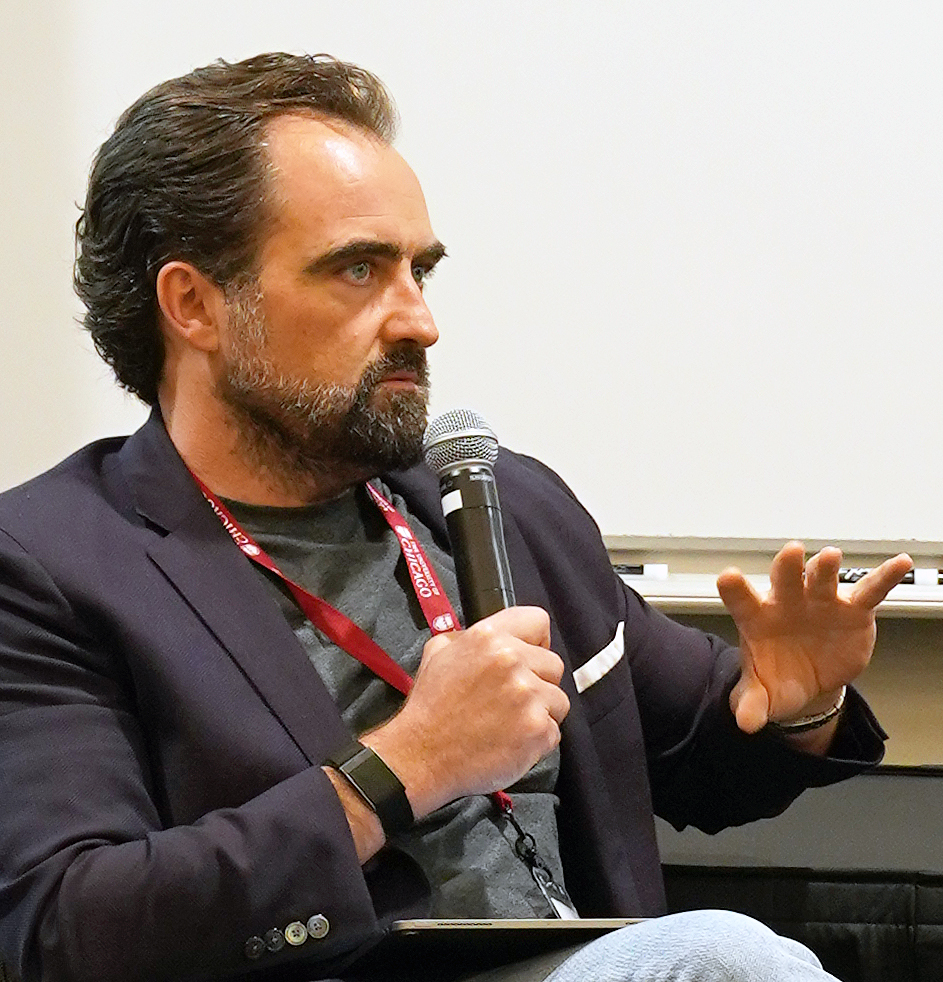When Sam Gill (AB’05) signed up to take a negotiation course with psychologist Professor Boaz Keysar as part of Chicago Booth’s Executive Program for Emerging Leaders, he expected to learn a useful skill. As an unexpected bonus, says the president and CEO of the Doris Duke Charitable Foundation, “The Psychology of Negotiation” gave him an entirely new approach to his field of work.
“Negotiation is not a common way of approaching investment in the charitable grant-making business, I think to its detriment,” Gill says. But Keysar’s first lecture changed his perception of what the negotiation process can achieve.
“The overarching lesson is that negotiation isn't caving to demand or taking advantage of other people, but recognizing that people have different goals and trying to align those goals to the maximum effect,” explains Gill.
“We want to maximize success for the grant, and our goals should overlap [with those of private investors], but they don’t always coincide, and resources are scarce. Boaz taught me that negotiation is about recognizing that if you can find the perfect match between the right [dollar] amount and the impact that the grantee is trying to achieve, that leaves the maximum amount possible for the next great thing that we might want to do—and that’s just good stewardship.”
Use the Data of Personal Experience
Gill is among thousands of University of Chicago graduates whose interpersonal finesse has benefitted from a class with Boaz Keysar. In addition to enduringly popular classes at the College and Chicago Booth, Keysar now offers “The Psychology of Negotiation” as an intensive two-day course for executives and other professionals interested in becoming better negotiators through understanding the guiding principles of human interaction. Participants role-play negotiations then discuss them as a group, gleaning vital process and outcome data and a deeper understanding of behavioral science.
It was very valuable to hear his perceptions on the psychology of others and how to work together to take advantage of our differences.
Brian Boonstra, SB’90
“By having a concrete framework to practice negotiation—and an actual person to argue the other side—you get as close as you can to the real thing,” says Uriel Heller (AB’18), who has drawn on lessons from “The Psychology of Negotiation” as he makes the shift from academia to entrepreneurship.
“When you negotiate, you always operate under a certain lack of knowledge of the other side,” he says. “We learned to prepare for negotiations with a limited amount of knowledge of the opposing party: What are their interests? What do they know about you? What information do they have to their advantage against you?
“And, in particular, what was so exciting and motivating about the course was having these real-world simulations to prepare for, with an actual opponent and the actual stakes of winning or losing. Such learning on the fly really helped internalize these lessons in a long-lasting manner."
Gain an Everyday Skill
For Brian Boonstra (SB’90), the most impactful lessons in “The Psychology of Negotiation” came from Keysar’s dynamic lectures. “He is very good at captivating the attention of the audience, using just the right number of anecdotes, and presenting charismatically,” Boonstra says. “It was very valuable to hear his perceptions on the psychology of others and how to work together to take advantage of our differences.”
Boonstra, who works as a quantitative analyst at Jump Trading LLC and took the course with Chicago Booth, finished a more confident manager. “I’m a better director of people now that I’ve taken this class,” he says.
He attributes this growth to Keysar’s compelling idea that negotiations are an everyday occurrence. What made him a better manager was applying Keysar’s lessons on recognizing and resolving contrasting aims.
“The class helped me understand that my daily interactions are a form of negotiation, and that my coworkers have different goals,” Boonstra says. “We tend to project ourselves on everyone else around us, and if we think something is a good idea, we struggle to understand why other people fail to perceive it that way.”
The class showed him the limitations of this myopia: “My employees are going to have differential reactions to how we do things, and I need to perceive them carefully, not simply assume they're a carbon copy of me. When we disagree on something, our conflicts can be resolved much in the way that differences in a target price can be resolved among negotiating counterparties.”
Boonstra would encourage any manager to take Keysar’s course. “It has caused real changes,” he says.
“What I learned wasn’t a toolset to be used and put down, but rather a perspective on my coworkers and employees—and once I heard those perspectives, it was impossible to go back to the way it was before. It has made me more aware of the dimensionality of human interaction.”

Negotiation isn’t a battle—it’s science.
Great negotiators are made, not born. Practice planning negotiation strategies, building trust, creating value, and overcoming psychological barriers with UChicago's The Psychology of Negotiation course.
Register Now


